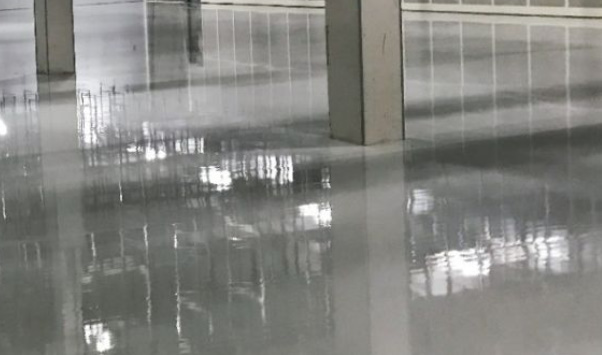Epoxy flooring is a technology that combines HARDENERS & RESINS. When the resins and hardeners are mixed, they chemically react to generate a homogeneous rigid plastic substance. Moreover, epoxy has excellent adhesive qualities and can bond to virtually any surface. Epoxy flooring is extremely durable, abrasion-resistant, inert, and able to withstand heavy traffic. That is why epoxy coatings last for many years and provide a durable, smooth, easy-to-clean, water-resistant, and high-performance surface that can withstand heavy loads. Because of these characteristics, epoxy floor is utilised in industrial buildings, sports complexes, hospitals, commercial locations, and so on.
Types of Epoxy flooring
Epoxy floors are classified based on the materials used and the area of application. The most prevalent forms of epoxy floor are described below.
Related posts from Vincivilworld
Self-Levelling Epoxy Flooring
The epoxy technology used in this flooring option is the stringent one that is presently in use. This epoxy floor is constructed entirely of solid epoxies and graded or quartz sand. Epoxy Mortar flooring systems are perfect for floor that must be highly chemically resistant and withstand a significant amount of impact. The epoxy mortar can also be used to fill cracks and level pitted floors before applying self-levelling epoxy flooring.
Epoxy Mortar Floor
The epoxy technology used in the epoxy mortar flooring option is the stringent one that is presently in use. This epoxy floor is constructed entirely of solid epoxies and graded or quartz sand. Epoxy Mortar flooring systems are perfect for flooring that must be highly chemically resistant and withstand a significant amount of impact. The epoxy mortar can also be used to fill cracks and level pitted floors before applying self-levelling epoxy floor.
Quartz Filled Epoxy Floor
High-performance epoxy polymer resin and coloured quartz grains are combined to create quartz epoxy floor. This type of flooring often employs quartz sand ranging in size from 150 microns to 2 mm. Quartz Epoxy Floor is used in decorative places that require sanitary and slip-resistant properties.
ANTISTATIC EPOXY FLOOR (ESD FLOOR)
Antistatic Epoxy Floor is also known as ESD floor (Electro static Dissipate). Anti-static floors are commonly used to safeguard against static electricity. Typically, this floor contains a conductive substance that collects static electricity and neutralises any potential discharge. However, for areas where combustible products are present, an epoxy floor with an anti-static solution is strongly recommended. This type of flooring is extensively employed in electronic, chemical, or pharmaceutical manufacturing facilities, healthcare facilities, or any other space where flammable gases or liquids present a risk of combustible dust buildup.
EPOXY FLAKE FLOOR
Coloured flake components are inserted into the epoxy to give a vibrant, multi-hued appearance on this sort of floor. The flakes not only produce a seamless appearance but also provide subtle grooves on the surface to prevent slips and falls. Epoxy flake floor is available in an infinite variety of sizes, colours, designs, and textures, making them suitable for every space. Because of these qualities, they are used in sports arenas, showrooms, and so on.







One comment
Comments are closed.